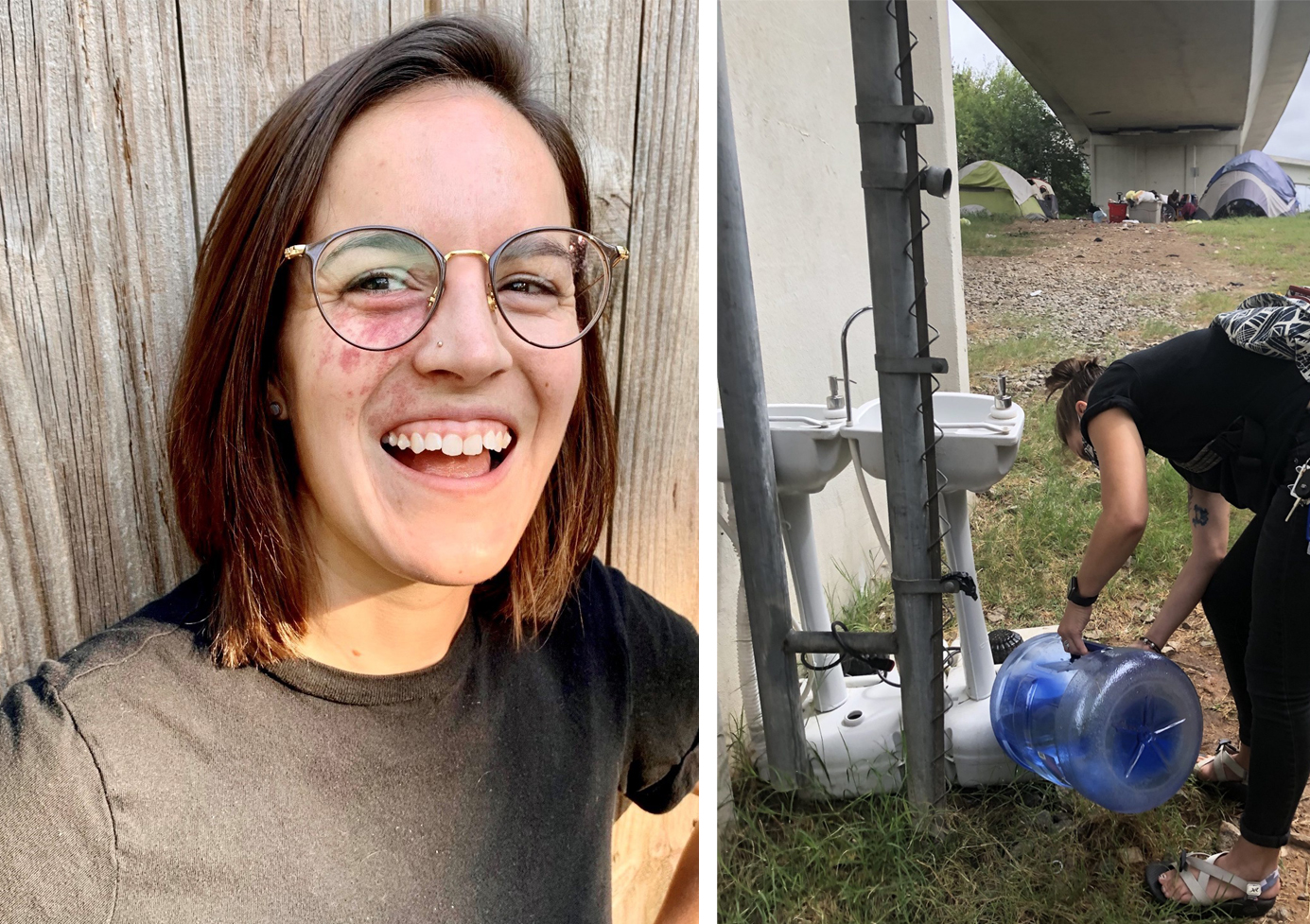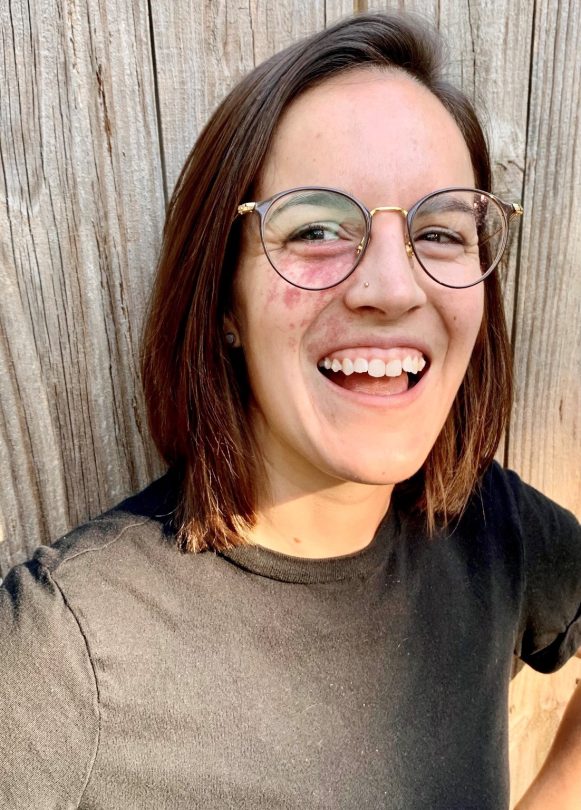
On Saturdays, public health Ph.D. candidate April Ballard ’14 and her colleagues from Emory University can be found providing quality hygiene and period products to a growing number of people in the Atlanta area who are experiencing homelessness. Rather than doling out pre-packaged bags of cheap items, the team offers each person unfettered choice from an array of personal hygiene, period and personal protective equipment supplies to meet their basic needs. The approach, devised to emphasize the human dignity of each recipient, is informed by Ballard’s experience as a research assistant in Appalachia, and by her own struggles as a young person growing up in rural Kentucky.
She’s written about these experiences as part of her responsibilities as a fellow in the Agents of Change in Environmental Health program, a partnership between the Environmental Health Network and George Washington University. Ballard was selected as one of the “next-generation environmental health leaders,” representing nontraditional voices.
“A lot of my work is at the intersection of environmental and social determinants of health,” she explains, “where someone is born, the stigma of identity and the behavior related to that.”
A first-generation college graduate and a member of the LGBTQIA* community, Ballard brings a unique perspective and sensibility to the science she researches and the people she works to help by shaping public health. She is motivated to replace piecemeal efforts with lasting, systemic change, and to make human rights a core value.
Ballard’s path to environmental health has been a bit nontraditional too — a perfect illustration of a Transylvania liberal arts story. After all, she began her Transy career as a Spanish major and biology minor, with thoughts of becoming pre-med. She took field courses with biology professor Sarah Bray, developing an interest in ecology, nature and ecosystems. The public health component ignited when she traveled to Ecuador as part of her Spanish language and literature studies. As Spanish professor Jeremy Paden introduced the culture and history of the country, she learned about oil companies in the Amazon rainforest and the pipelines that poisoned indigenous populations.
“At that point, there was no justice for the people who had been poisoned and lost their drinking water and their environment. That was just really eye-opening to me,” she remembers. “And the fact that health care couldn’t address that shocked me.”
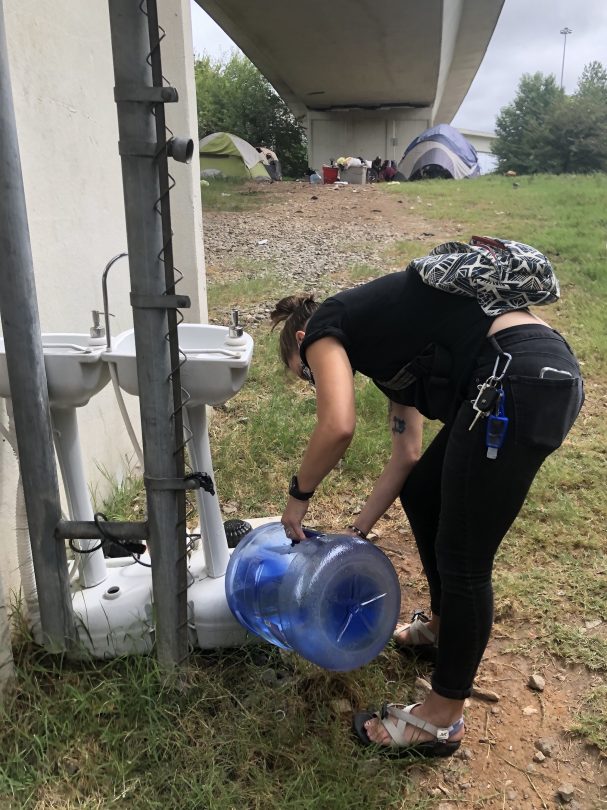
Paden then gave her a book about public health, Tracy Kidder’s “Mountains Beyond Mountains,” about Paul Farmer’s commitment to solving global health problems. She found her interest shifting from treating illness to preventing it.
“I wanted to work with people, but at a population level,” she realized. “That’s integral in biology, especially ecology. We think about community. Humans are part of the ecosystem that affects our health.”
It made sense for her to consider a future in environmental health. So, she added biology as a second major and the Transy network got to work. Former Dean Kathleen Jagger introduced Ballard to alumna April Young ’04, who earned a Ph.D. from Emory University and is now associate professor in the Department of Epidemiology in the University of Kentucky College of Public Health. Young became a mentor, guiding Ballard into the master’s program in public health at UK.
After receiving her master’s degree, Ballard worked as a research assistant for Young on projects addressing substance use and drug-related harms (e.g., HIV, hepatitis C) in rural Kentucky, incorporating the science of social behavior, epidemiology and infectious disease. Even today, Ballard continues to contribute to that research, working on joint projects between Emory and UK. And Young continues to be her mentor. Young’s guidance and example have influenced what Ballard describes as her human-centered, pragmatic approach to research. “It’s another way that Transy has shaped my career and my life,” says Ballard.
Listening to and gathering feedback from the people she researches is central to her work. So is identifying the roots of social stigma. Because the stigma of homelessness can relate to the lack of access to water, sanitation and hygiene (WASH), Ballard is working to understand factors that prevent WASH access and resulting health outcomes, as well as how to provide WASH to vulnerable populations.
“In the WASH sector, we’re looking for pathogens a lot of the time. We often use microbiology techniques to study contamination of the environment, taking a sample of soil or feces.” However, studying WASH, she explains, requires a behavioral component because a person must interact with their environment and somehow ingest pathogens. “I work on developing measures that incorporate environmental behavioral conditions that lead to exposure, things that are harder to measure traditionally.”
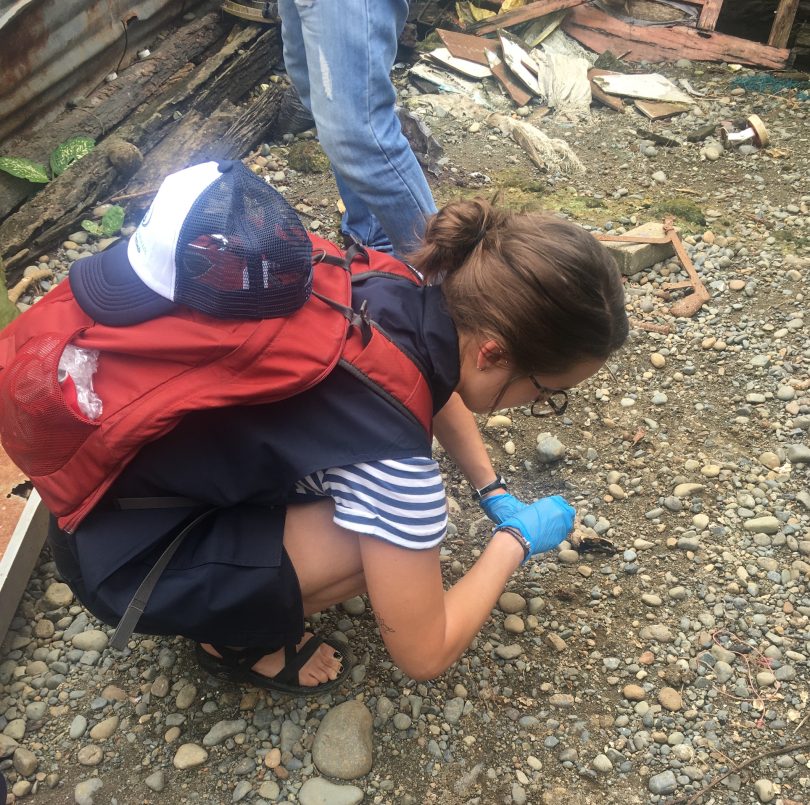
Ballard brings a perception that makes connections that can be missed by others. She recalls reading a study that looked at homelessness and fecal contamination on streets near shelters and how it noted that open defecation near restrooms must mean the toilets were not functional. But Ballard saw how the study failed to look closer to see that the people experiencing homelessness may not have access to the buildings with the restrooms. She’s always thinking about how to improve research and health outcomes through more comprehensive approaches, including capturing “behavioral, sociocultural and environmental determinants of health.”
The field of environmental health is relatively new, Ballard notes, which gives researchers the opportunity to help build the discipline. Like the Agents of Change program that values her input and recognizes her promise, Ballard understands what it means to amplify diverse perspectives.
“Science is predominantly white and male and comprised of people who come from highly-educated families,” she says, and is increasingly so at the Ph.D. level and beyond. “Amplifying diverse voices is important because they represent people who have been historically excluded. And when we don’t have people with diverse thought and voices, we’re not doing great science.”
Being able to communicate that science is just as important in the field of public health. “If we’re not making our research translatable and understandable in the real word, then we’re failing as scientists,” Ballard says. It’s why the Agents of Change program has made public writing a fundamental part of the endeavor.
Writing across disciplines is something Ballard learned at Transylvania. “I came into Transy as not a great writer,” she says, recollecting how much professors Alan Bartley (economics) and Martha Billips (English) helped her during her first year. “Learning to write for the Foundations of Liberal Arts classes, for Spanish and the scientific writing in biology — being able to code switch into those different disciplines — was ultimately really helpful both in my scientific writing as a researcher and as someone who is trying to do science communications.”
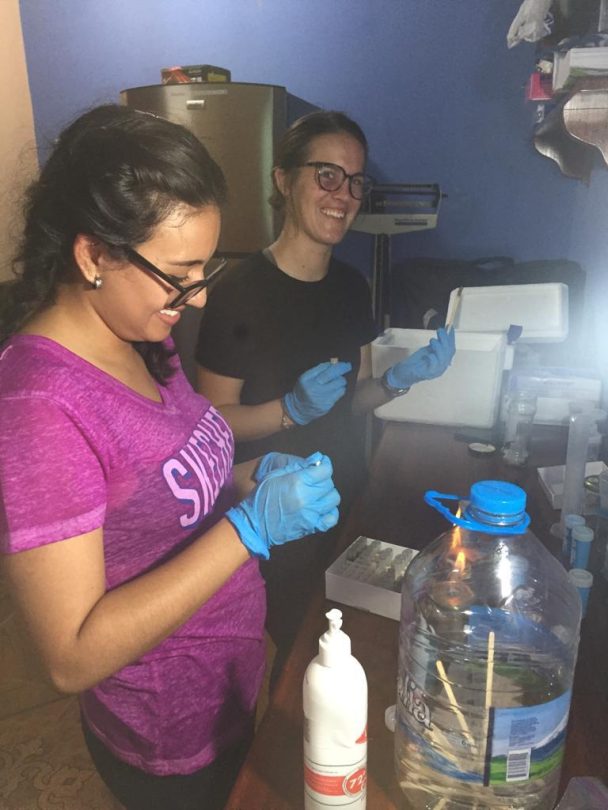
Collaborating with professionals from different disciplines is another part of the program she values and was trained to do at Transy. “You inherently get that at Transy based on requirements,” she explains. “Especially being a double major in Spanish and biology. I was able to learn about a lot of different approaches to questions, to writing and to problems. I took that with me to my master’s program, focusing on environmental health and epidemiology. That learning to hold space for multiple disciplines and perspectives — I’ve been able to take that with me.”
In fact, her Ph.D. work is twofold, the first being domestic, working on homelessness as written about in her article, and the second being international, as her dissertation research is in Ecuador studying child exposure to animal-sourced pathogens — so she uses her biology and Spanish background. “It’s been really great for everything to converge into this ultimate academic experience,” she adds. “Transy really set me up to be successful in my master’s program and then in my Ph.D. in a lot of ways.”
Ballard’s long-term goal, after gaining more training in developing and evaluating programs, is to advocate and push for policy that helps people experiencing homelessness to have equity related to water, sanitation and hygiene. “I think the program I’m in now is really priming me to do that.” To reach her goal, she says she’ll need to be able to communicate to convince people from all backgrounds to support initiatives related to WASH and people experiencing homelessness. “To push for policy you have to be able to talk to policy makers and government officials. I think this fellowship is setting me up to be able to think through how to package my work, to elevate it in a meaningful way that actually leads to change.”
In the meantime, in the words of one Atlanta man, with no home and new barriers to shelters and resources during COVID-19, who is grateful to receive a quality razor on a cold Saturday in Atlanta:
“Just keep doing what you’re doing.”
Read more about the Dignity Packs project.

